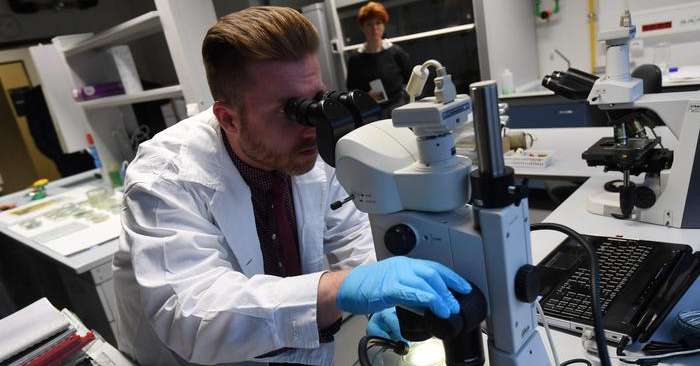PADOVA. A research by the international team led by Prof. Andrea Alimonti (Veneto Institute of Molecular Medicine, University of Padua, Oncological Research Institute, Institute of Cancer Research in London) has discovered a mechanism in the human intestine that could change the approach therapeutic in cases of prostate tumors that have become resistant to castration. Prostate cancer is the most common malignancy in humans and its incidence is increasing.
Male hormones (androgens) are the main factor among those that stimulate the growth of this tumor, and for this reason – in cases that require treatment – drugs that block the production of androgens are used. However, if it is true that in the initial stages this type of treatment almost always manages to block the disease, after a variable period of time the tumor often becomes resistant to this therapeutic approach (in this case we are talking about castration-resistant prostate cancer) and then the prognosis becomes worse. The team identified a novel mechanism involved in making prostate cancer resistant to anti-androgen therapy and linked to the gut microbiome. The team was able to demonstrate that the microbiome, both in some animal models and in humans, is enriched with certain particular bacterial species in cases where resistance to anti-androgenic therapies is recorded.
“These bacterial species – explains Alimonti – are able to produce androgens starting from some metabolic precursors. In doing so, these bacteria are able to stimulate tumor growth in patients, even when the medicinal therapies have been able to eliminate the androgens produced by testicles and adrenal glands “.
This discovery could have enormous importance in the future: thanks to very complex analyzes, the researchers were able to demonstrate the existence in patients of both bacteria that favor and bacteria that counteract this evolution, thus creating the conditions for a better or worse prognosis. “Our discovery – says Alimonti – therefore opens up the possibility of therapeutic strategies, which, thanks to the manipulation of the microbiome, could nullify the development of androgen-producing bacterial species. We are already looking for industrial partners who are willing to give us a hand to verify whether this dream is achievable “.
